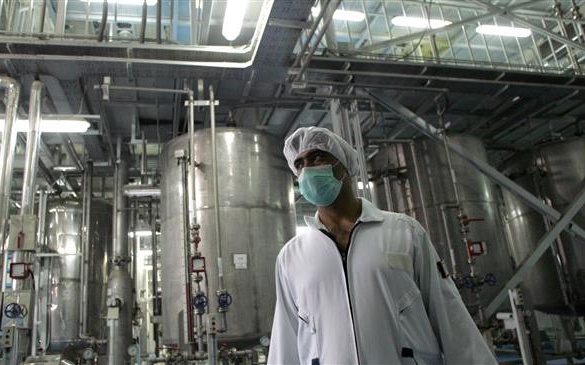Iran has notified the International Atomic Energy Agency that it is accelerating underground enrichment of uranium, as Tehran suspends commitments under the 2015 nuclear deal with the 5+1 Powers.
In a letter to the IAEA on Wednesday, Iranian officials said they will hundreds of additional advanced IR-2m centrifuges in the underground facility at the Natanz nuclear complex.
Under the nuclear agreement, Iran can only operate first-generation IR-1 centrifuges. However, the Rouhani Government indicated in summer 2019 that it would install advanced versions, in response to the Trump Administration’s withdrawal from the deal and its imposition of comprehensive sanctions in November 2018.
Iran has already begun enrichment with one cascade of 174 IR-2m machines and is planning to install two more cascades at Natanz. They will supplement the 5,060 IR-1 machines in a complex built for more than 50,000.
A building holding some of the advanced centrifuges was bombed in July. Iranian authorities have accused a contractor, working for Israel, of smuggling an explosive device onto the site.
Iran is reportedly developing more underground facilities at the complex to avoid aerial attacks.
See also Trump Asks for Options to Attack Iran Nuclear Site
Iran Acknowledges New Activity
The Islamic Republic acknowledged its letter to the IAEA, while protesting that it had been leaked to the media.
Kazem Gharibabadi, Iran’s permanent representative to international organizations in Vienna, wrote on Twitter:
@iaeaorg confidential report, based on Iran's confidential letter, appeared in Media immediately even before the BoG Members could track it down. Agency is not merly responsible to update the development, but shall ensure confidentiality of safeguards information (1)
— Gharibabadi (@Gharibabadi) December 4, 2020
The IAEA’s last quarterly report, issued in November, found Iran has stockpiled more than 2.4 tons of enriched uranium, 12 times the 2015 deal’s limit of 2.4 tons.
That is still well below the 8 tons which Iran held before the agreement, and Tehran has not moved beyond 4.5% enrichment.
Before the agreement, Iran produced 20% uranium, which can potentially be further enriched to a military grade of more than 90%. Under the deal, all of Tehran’s 20% fuel was shipped out of the country.


“We Are Accelerating Underground Nuclear Activity”
Knock yourselves out, if you run out of storage there is always khamenie’s rear end you can stuff in.